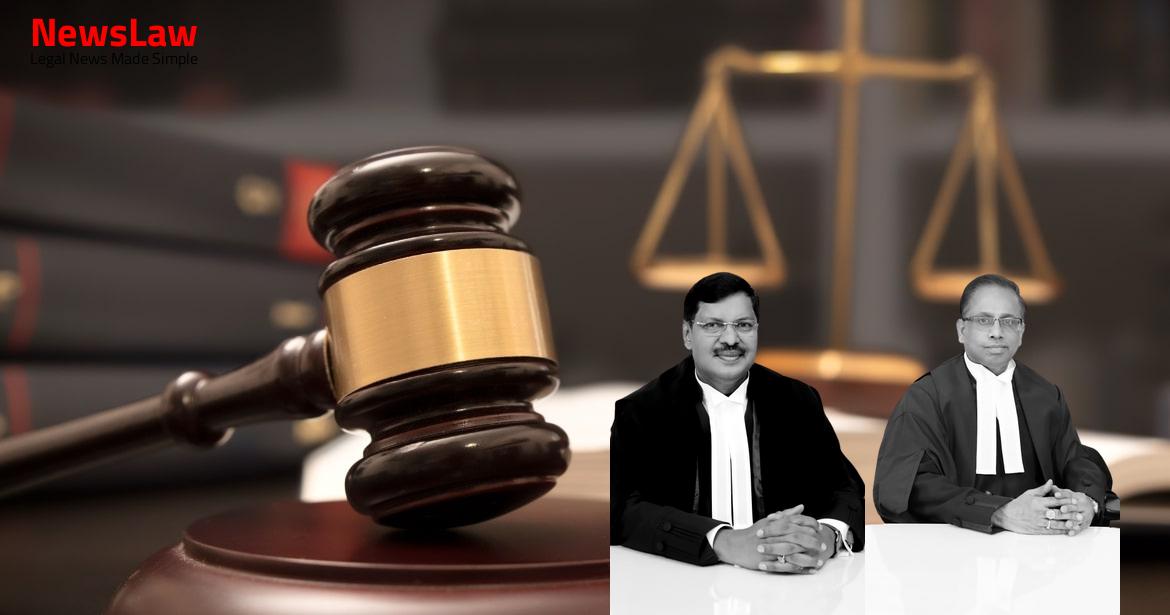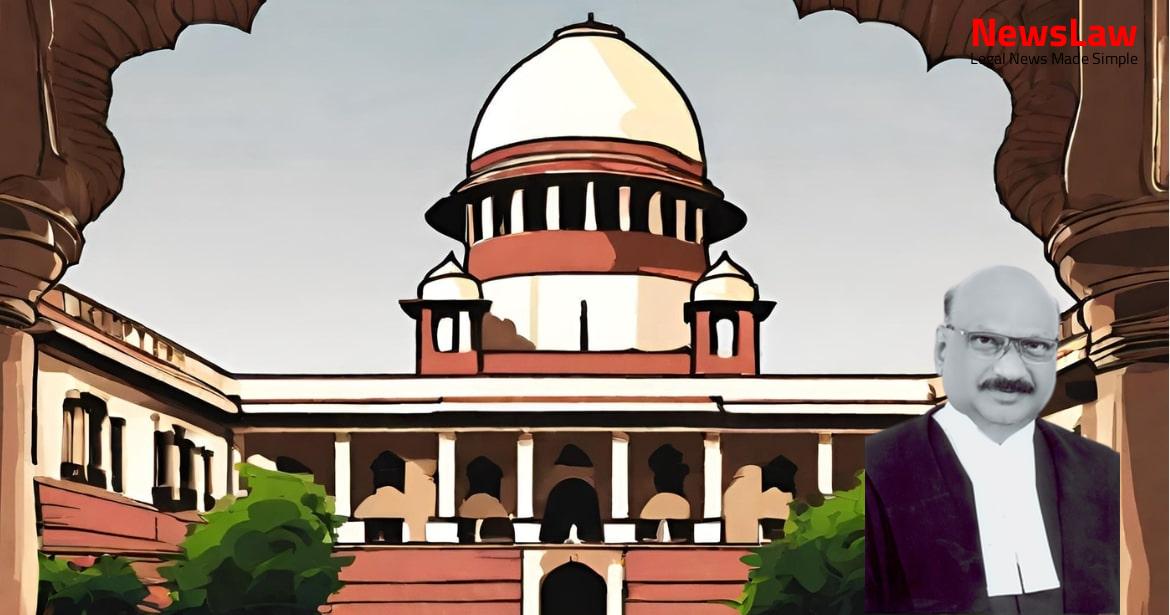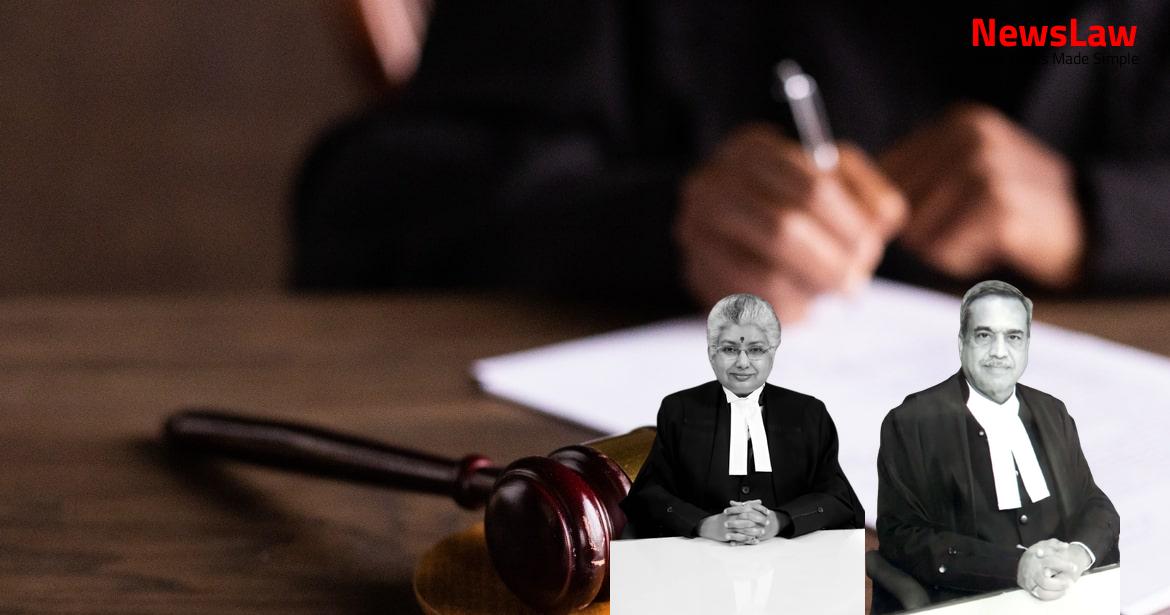In a momentous ruling by the Supreme Court of India, the case involving false affidavit allegations in the High Court of Uttarakhand has reached a resolution. The Court’s decision to allow the appeal and quash the proceedings marks a pivotal moment for justice. Stay tuned to learn more about the intricacies of this legal battle.
Facts
- The State’s affidavit supported James Kunjwal’s position.
- James Kunjwal was accused in FIR No.109 of 2021 for establishing relations on false pretext of marriage.
- His bail application was rejected by the Additional District and Sessions Judge, Nainital.
- James Kunjwal was alleged to have intentionally filed a false affidavit before the Court.
- A complaint under Section 193 of the IPC was filed against James Kunjwal.
- High Court dismissed the application for cancellation of bail and issued directions regarding the false affidavit.
- Conflict of facts in affidavits filed by the complainant and James Kunjwal were noted.
- Final order dated 1 October 2022 observed that James Kunjwal intentionally filed a false affidavit and directed to file a complaint against him.
- James Kunjwal pleaded for bail before the High Court after his application was allowed.
Also Read: Landmark Judgment in Matrimonial Discord: Setting Aside Onerous Bail Conditions
Arguments
- The High Court was justified in directing the filing of the complaint against the appellant.
- A Court is not ‘bound’ to make a complaint under Section 195(1)(b) of the Code of Criminal Procedure, 1973, unless it deems it expedient in the interest of justice.
- Reliance is placed on the Constitution Bench judgment of the Supreme Court in Iqbal Singh Marwah v. Meenakshi Marwah.
- The counter affidavit claims that the appellant misrepresented and twisted certain facts, such as continuing relations with the respondent despite his engagement to someone else and forcing the complainant to terminate her pregnancy.
Also Read: Landmark Supreme Court Judgement on Compensation for Deceased Employee’s Family
Analysis
- The accused had initially promised not to repeat abusive behavior towards the complainant but continued to send abusive messages after returning from the police station.
- The accused denied directly communicating the obscene Whatsapp status to the complainant.
- The complainant mentioned the accused persistently pressuring her through various means, including sending abusive texts and statuses.
- The court emphasized the need for evidence to justify initiating criminal proceedings against the accused.
- The accused was warned by the police to stop sending abusive messages after admitting to intentional behavior.
- The court highlighted that viewing someone’s Whatsapp status without permission invades their privacy.
- The court questioned the complainant’s lack of specific dates for the uploaded statuses in the case.
- The appellant’s affidavit was deemed to be a presentation of events and a denial of the complainant’s version rather than false evidence.
- Whoever intentionally gives false evidence or fabricates false evidence in a judicial proceeding can be punished with imprisonment up to seven years and fine.
- Intentionally giving or fabricating false evidence in any other case can lead to imprisonment up to three years and fine.
- A trial before a Court-martial is considered a judicial proceeding.
- An investigation preliminary to a proceeding before a Court of Justice is also a stage of a judicial proceeding.
- Section 195(b)(1) of Cr.P.C. specifies that certain offences under the Indian Penal Code cannot be taken cognizance of by a Court except on specific complaints.
- Section 340 outlines the procedure for prosecution in cases falling under Section 195.
- Proper approach in cases involving Section 193 has been defined by the Court in Dr. S.P. Kohli, Civil Surgeon, Ferozepur v. High Court of Haryana Through Registrar.
- The Court must have a prima facie opinion that there is sufficient and reasonable ground to initiate proceedings against the person who has allegedly made false statements.
- Proceedings should be initiated only when it is expedient in the interests of justice to punish the delinquent and not merely due to inaccuracies in statements that may be innocent or immaterial.
- There must be deliberate falsehood on a matter of substance for proceedings to be initiated.
- The Court must be satisfied that there is a reasonable foundation for the charge, supported by distinct evidence and not mere suspicion.
- Proceedings should be initiated in exceptional circumstances, such as when a party has committed perjury to obtain beneficial orders from the Court.
- Respondent did not provide any specific material or allegation of deliberate falsehood by the Appellant.
- Respondent only alleged untruth on the part of the Appellant without substantial evidence.
- The statements made by the Respondent were beyond the scope of the present adjudication and pertained to the trial of the main offence.
- Three scenarios in which a court could justify invoking powers to initiate proceedings against the Appellant were found to be unmet, making the prosecution unjust.
Also Read: Modified Compensation Calculation in Prem Lal Anand v. Narendra Kumar Case
Decision
- The decision in this appeal will not affect the pending criminal case against the appellant.
- The criminal case will proceed as per law on its own merits.
- Any pending applications related to the appeal are now disposed of.
- The appeal is allowed.
- Any proceedings resulting from the appeal are quashed.
- The direction of the High Court of Uttarakhand to register a complaint against the appellant is set aside.
Case Title: JAMES KUNJWAL Vs. THE STATE OF UTTARAKHAND (2024 INSC 601)
Case Number: Crl.A. No.-003350-003350 – 2024



